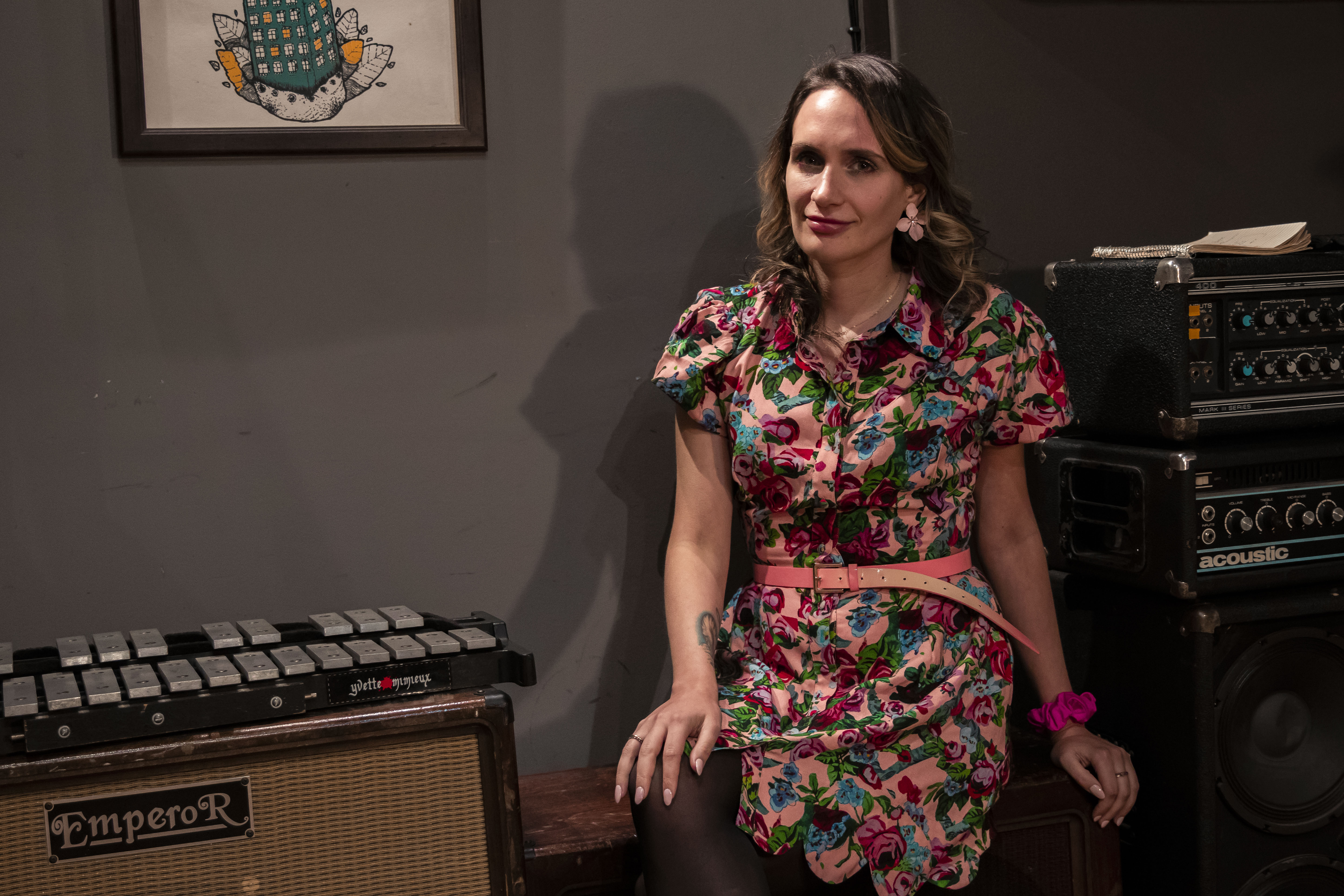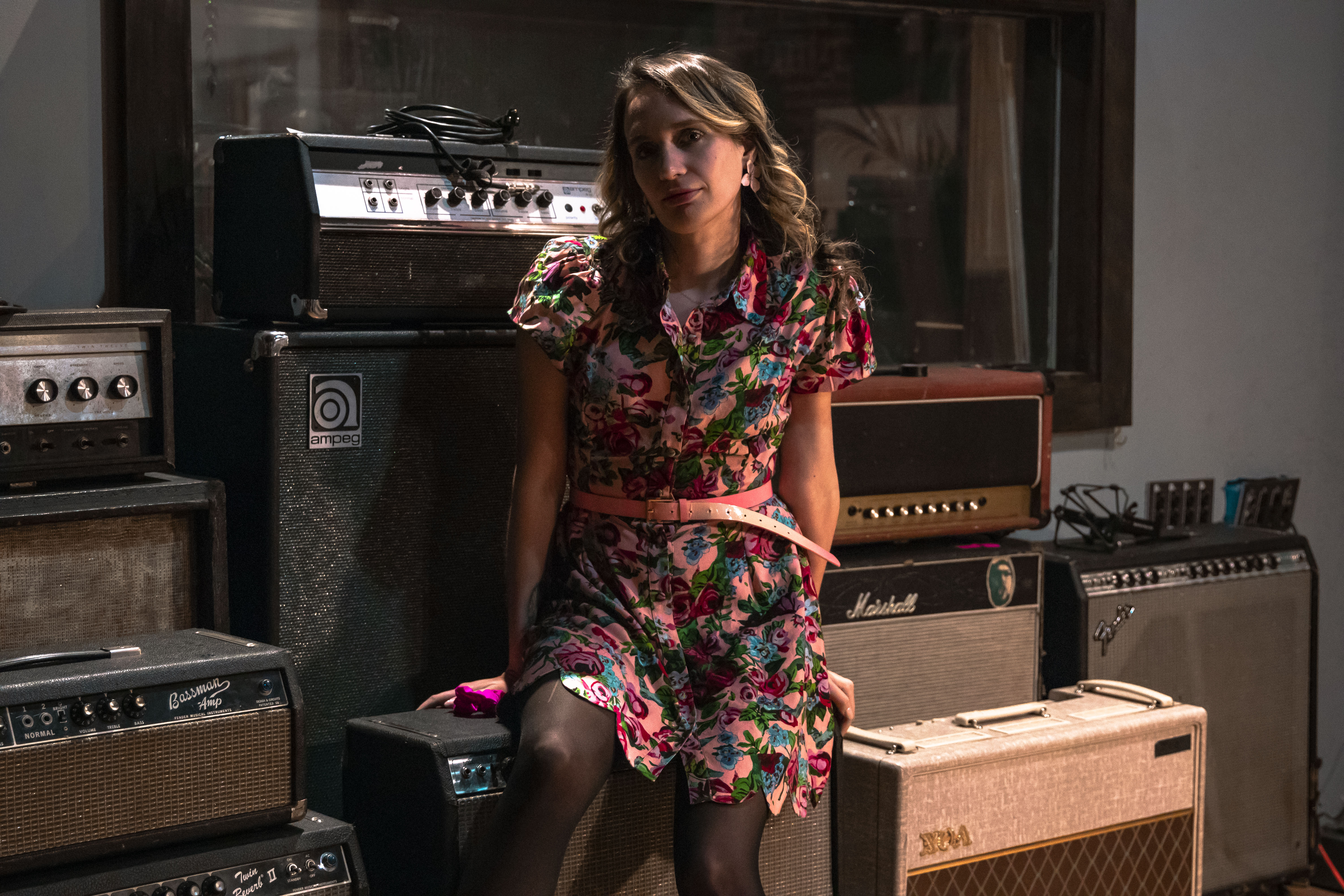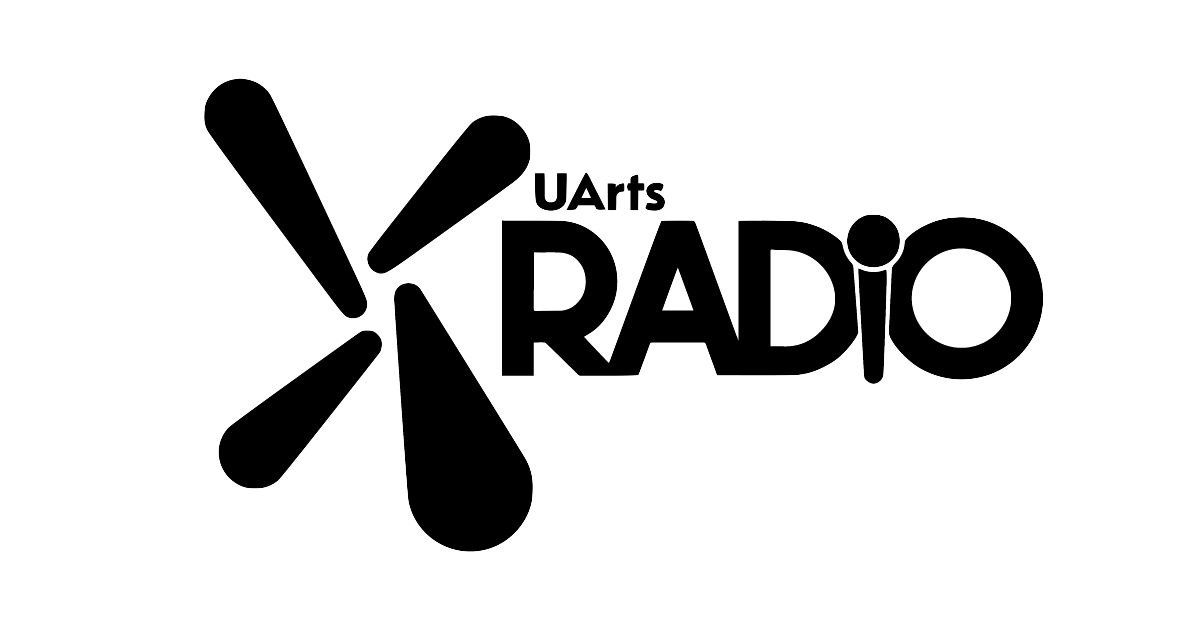by Kate Lord

Sadie Dupuis is the self-proclaimed “front demon” of the band Speedy Ortiz and the mastermind behind solo project Sad13. Pre-social distancing, Dupuis and I sat down at Headroom Studios to talk about her work as a musician, poet, and activist.
Dupuis sees much of her work in different art forms as being unrelated. The common thread across her music, poetry and activism is just that it comes from her. The parallel that people like to draw between poetry and lyrics is, across the board, not a great one, and particularly in her work is just not there. “Other than, like, I’m the same person making different forms of art, but in terms of process and product, I don’t feel like poetry and music are the same thing at all,” she says. To her, the lyrics are not lyrics without the larger context of a song. “I guess I view songs as like the whole,” Dupuis says, “I don’t view the song as just the music or just the vocal melody or the lyrics, it’s, like, the whole recording and arrangement to me, so the lyrics are just like one small piece. It’s like, if you listen to an isolated bass track of a song, it’s not necessarily a super fun experience, I feel like reading lyrics is a similar thing.”

In addition to being different processes, her work is usually separated out by never working on poems or music at the same time. After spending the end of last year recording a record, Dupuis has spent the beginning of this year working on a second book of poems. Those stretches of time are sometimes broken up by dry patches, too. “I’m not the kind of artist who can just wake up everyday and do it no matter what. Like, I never throw away a song — if I start something, it’s because, like, at least in my ego, it’s a great song that my head can hear clearly and I want to see it to its end. It’s kind of similar to me with poetry, too,” she says, “So if I’m not moved to work on something, I often don’t. And I don’t know that that’s a great practice, like sometimes I have forced myself to do something, and it still comes out pretty cool. But I generally work on poetry or music because an idea came into my head that I need to drop everything to see to.”
Last year, in a stretch of time more dedicated to music, Dupuis spent time at six different studios making a new Sad13 record. “It had been a few years since I’d made a record, Speedy still had a lot of tour dates, and I really wanted to work on another Sad13 record, but I knew I didn’t have the uninterrupted time to just, like, write an album and then go record it somewhere,” she says. “So, especially because the process for that record is me basically playing everything, like, I don’t play the drums but I’m programming them exactly as I want them to be played, it’s just a lot — it would be really hard to go into a studio and just do 12 songs. There’s often over 100 tracks of, like, different things on the records. Like, I couldn’t memorize all of that to redo in a studio.”
Dupuis focused on making two songs a month to take into the studio with her, and then searched for studios that were in the area of the scheduled Speedy Ortiz shows. She would fly out early or stay later than the rest of the band, record her two songs, and then head home. In writing for that record, Dupuis made very conscious decisions about instrumentation based on what gear she knew would be available to her in each studio. “I did a couple songs at New Monkey, which was Elliot Smith’s studio, and I could see on the gear lists, like, ‘what are the specific organs, and toy synths, and acoustic guitars that he had’. So I’d kind of try to write for those instruments. I’ve never worked that way before, so it was fun,” she says.
The first Sad13 record was recorded completely at home, and Dupuis took largely the same approach this time, the only difference being that the home recorded versions were just really fleshed out demos instead of the final product. This is largely the same way that Dupuis writes for Speedy Ortiz, too. “I always really liked my demos and thought they had something special that, as much as it’s amazing to collaborate, I kind of missed getting to do that,” she says. “And so maybe the second Speedy album I stepped away from doing as many fleshed out demos even though I still write everything, but when I worked on the Sad13 record I was, like, ‘Oh, this is a way better way for me to work — like, to have a clearer sense of the song. Working on some of the Speedy records, I’d be telling Mike, our drummer, ‘open the hi hat on like the two-and, and then close it.’You know, trying to explain it instead of just programming it — it didn’t make sense. So, on the last Speedy record, I wound up basically doing the same thing and we flew all the synths in from stuff I did at home.”
There is one big difference, though, in that Speedy Ortiz songs then go through the process of translating them to a band “I might be, like, ‘here’s the bass part I thought up,’ and maybe it’s insane. Or ‘here’s the bass part I thought up — now this is going to be the second guitar part’ and we’re gonna write a different bass part. So there’s a little bit more input from other people as opposed to just me locking myself in a room”

In addition to her work as an artist, Dupuis is also a driving force behind No Music for ICE — “A coalition of musicians uniting to say no to ICE and the tech companies that power it.” On the day that we spoke Amazon had pulled their sponsorships from all SXSW events due to COVID-19. Dupuis had been planning a trip to Austin to protest those events, and although the circumstances were unfortunate, she described this as “the one good thing Amazon has ever done.” No Music for ICE encourages musicians to remove their music from Amazon Music; they have instructions for how to do so on their website, and have a letter that artists can sign to pledge to boycott performing at Amazon sponsored events until they cancel contracts with ICE.
While asking Dupuis about the importance of people using their platforms to take stands against companies like Amazon, she points out to me that, while that is important, it’s just important for all people to do. “I think anything I’m doing now that I have some kind of platform from playing music is stuff that I did and felt before I had any platform from playing music,” she says. “My mom was super political and we grew up going to protests and boycotting things and it’s just kind of always been how I’ve been and I’m not good at sucking up to something that I think is unfair, or treats anyone poorly.”
Though coming up through the indie rock scene Dupuis was frequently disappointed in her peers, she does see that there has been improvement since she started playing music, some of which she sees in the use of bandcamp as a fundraising tool, and a place where music can be streamed for free with no limits, which is particularly relevant in the current moment. Bandcamp has been picking one day a month to waive their cut of purchases, and many people, Dupuis included, have used this as an opportunity to fundraise for organizations that are hurting now more than ever.
While she manages to accomplish an impressive amount across all of these different pursuits, Dupuis admits that even she does not have all of the answers to managing creative pursuits as careers. “I still get the feeling, like, when I’m working on a song, that it’s this all-consuming thing,” she says, “I’m, like, extracting something sometimes painful out of me. It can really mess with your work ethic, I think, to have your work be your passion.” Dupuis started working with a new therapist a year and a half ago — something she had put off because touring as much as she was made it impossible to see someone consistently — and says that finally dealing with things like OCD that were impacting her work. “I don’t have a good answer. I think just having someone you can talk to about the strangeness of being any person working in this country at this time,” she says. “I think all forms of work can feel really demoralizing at times, but it’s helpful to remind yourself that you’ve lucked into something that you love, and to try to treat yourself with that same kind of love, too, while you’re working on it.”
